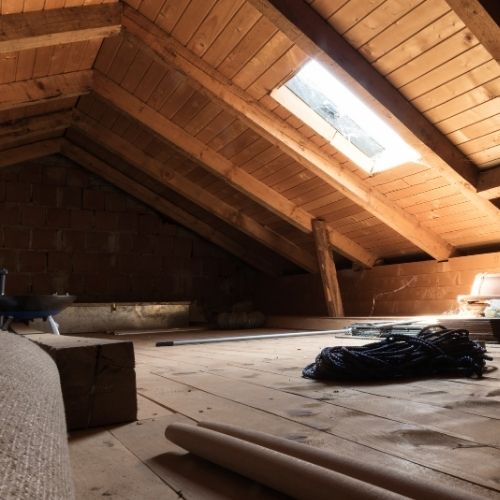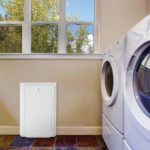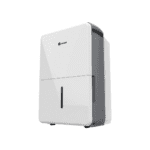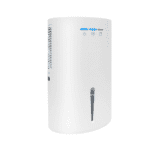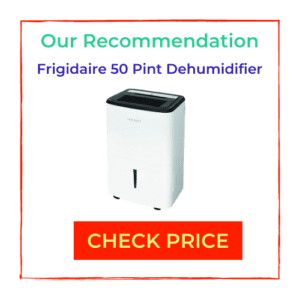A Detailed Guide On Buying The Best Dehumidifier For Attic in 2024
Last updated on: July 1, 2024.
Contents
- A Detailed Guide On Buying The Best Dehumidifier For Attic in 2024
- Attics, memories, and humidity problems.
- Get rid of high humidity
- Will dehumidifier stop smell in attic?
- 5 Best Dehumidifiers For Attic (July 2024)
- 1. Frigidaire High-Efficiency 50-Pint Dehumidifier
- 2. hOmeLabs 50-Pint Dehumidifier
- 3. Ivation IVADM35 Powerful Mid-Size Thermo-Electric Dehumidifier
- 4. BlueDri BD-76 Commercial Dehumidifier for Home
- 5. Ivation 14.7 Pint Small-Area Compressor Dehumidifier
- BUYING GUIDE
- Sizing dehumidifier for attic spaces
- Where should you place a dehumidifier in the attic?
- Our Verdict
- FAQ Section
- Final Words:
Attics, memories, and humidity problems.
Don’t you love the excitement of unearthing old treasures from your attic?
Filled with fond memories, attics are more than just storage spaces. They are happy sky parlors where you can reminisce in your pajamas, listening to some awesome music.
But more often than not, climbing up your attic stair can open up the pandora’s box. One trip to the attic filled with cobwebs, insects, musty odor, dust mites, mold, and mildew is sure to send you and your family to the hospital for allergic infections and insect bites.
It’s a heartbreaking sight to see your memories and treasures destroyed by mold growth, rust, frost accumulation, water leakage, and pest infestation. Besides the health hazards, bad attics also create the risk of structural integrity damage, cracks, condensation, ghosting, and water leakage.
Do you know the root cause of all the problems mentioned above?
It’s the high humidity in your attic.
The excess humidity can be attributed to some factors such as additional insulation, heating sources, roof leaks, and poor ventilation systems. The heat rising from the lower floors of your home is often retained in attics, further aggravating its inhospitality.
Get rid of high humidity
The humidity problems can slowly creep down from the attic and damage your entire home. Eliminating excessive humidity levels from your loft area is indispensable for your health and safety.
What is the best, fool-proof method to get rid of excess moisture from your loft?
It’s quite simple.
Install the best dehumidifier for attic. All your high humidity problems will be resolved.
Will dehumidifier stop smell in attic?
Attic smell is caused due to the presence and growth of mold, mildew, mites, and spores. The musty smell increases when some items such as wet clothes, dryers, and bathroom exhausts are vented into the attic. The increasing vents result in high humidity, which is the root cause of these smelly allergens.
If you want to remove bad odor from your attic area, make sure you reduce its humidity level.
What better way there is to reduce humidity than to use the best dehumidifier for attic?
Yes, install an efficient, portable dehumidifier to relieve your attic from odor problems. You can use a small 13 pint dehumidifier or a large one such as the 70 pint dehumidifier for the attic.
Don’t know how to choose the best dehumidifier for an attic?
Then check our ‘ Five best dehumidifier for attic 2024’ reviews below.
5 Best Dehumidifiers For Attic (July 2024)
Now get ready to shop for the best attic dehumidifier?
To help you buy the right one, we have reviewed some of the best dehumidifiers in the market. We have carefully considered significant parameters such as pints capacity, water tank volume, continuous drainage options, electronic humidity control, energy star rating, filter reusability, portability, noise level, fan speed, timer, and automatic features such as auto shutoff, auto restart, and auto defrost.
Scroll down and keep reading our review of the five best dehumidifiers in the market. Mind you, we discuss the downside of these attic dehumidifiers as well.
| Image | PRODUCT/ Features | Rating | |
|---|---|---|---|
Our Top Pick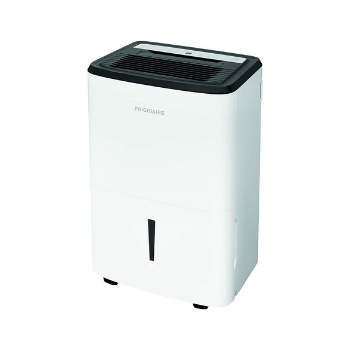 |
Frigidaire High Efficiency 50-Pint DehumidifierSize: 11.6 x 15 x 24.4 inches Weight: 39.9 lbs. Additional Features: Custom Humidity Control, Full Tank Alert, Washable Filter |
||
Runner Up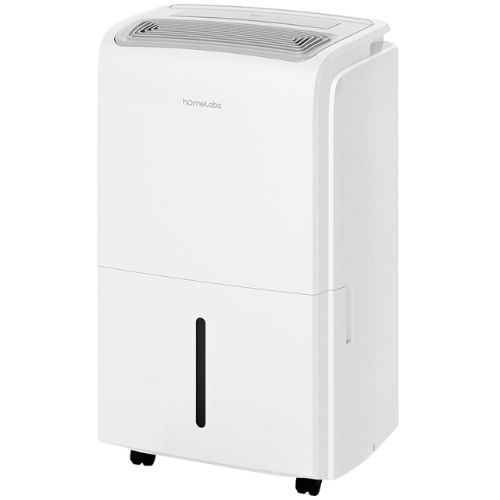 |
hOmeLabs DehumidifierSize: 26.2 x 17.4 x 13.9 inches Weight: 46. lbs. Additional Features: Smart Operation, Non-flammable, Auto-Shut Off |
||
Budget Pick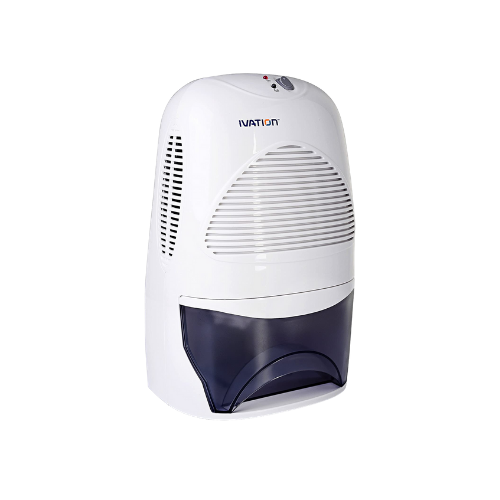 |
Ivation Mid-Size DehumidifierSize: 9.6 x 14.1 x 7.2 inches Weight: 4.85 lbs. Additional Features: Peltier Technology, removable bucket, Water Full Indicator |
||
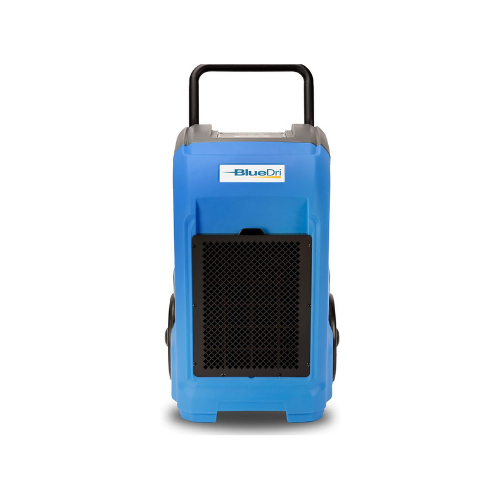 |
BlueDri BD-76 Commercial Dehumidifier for HomeSize: 19 x 20 x 32 inches Weight: 81 lbs. Additional Features: Digital controls, Hour Counter, Automatic Water Pump |
||
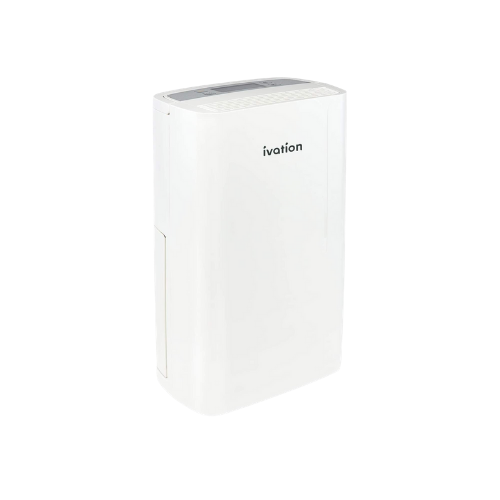 |
Ivation 14.7 Pint Small-Area DehumidifierSize: 7.1 x 10.9 x 18.3 inches Weight: 24.7 lbs. Additional Features: Auto Restart, Smart, Built-in timer |
1. Frigidaire High-Efficiency 50-Pint Dehumidifier
Pros
✔️ Best moisture absorption
✔️ Built-in pump
Cons
❌ None
2. hOmeLabs 50-Pint Dehumidifier
Need smart, safe, energy star dehumidifiers for your attic? Look no further than the efficient hOmeLabs model.
With the ability to remove up to 50 pints of moisture every day, this unit can dry your living space (up to 4500 sq ft). Its auto defrost feature enables low-temperature operation. Its energy star rating, 2 fan speeds, electronic LED control panel, and the 24-hour timer saves you a lot of effort, energy, and cost.
Equipped with one of the best safety features available in the market, this energy star dehumidifier includes a non-flammable metal frame and external metal case. The enclosures are made of heat resistant glass fiber and silicone wire. The unit comprises an auto restart feature, airflow blockage alarm, and safety standby mode that shuts the unit down for 1 hour after 24 hours of continuous usage to prevent overheating.
Providing splash-free, clean, and continuous draining, this energy star dehumidifier comes with a 1.6-gallon bucket with excellent water level visibility. This dehumidifier has an auto shut off and indicator alarm alert that prevent water spillage and flooding.
Here are its pros and cons.
Pros
✔️ Smart and safe
✔️Energy efficient
Cons
❌ Bit noisy
3. Ivation IVADM35 Powerful Mid-Size Thermo-Electric Dehumidifier
Want cost-efficient, compact yet powerful dehumidifiers? Then try the Ivation IVADM35 model.
Capable of extracting more than 1.25 pints of water from 169 sq ft, it is the best dehumidifier for an attic. The Ivation unit uses advanced Peltier technology and includes a 12 Volt DC power adapter that increases its life span, efficiency, and reliability. Consuming less power than its counterparts, the unit helps the user save a lot of money on utility bills and maintenance.
Its in-built pump and 2 liter water tank enable continuous drainage. Its auto shut off feature prevents flooding and spillage from the water bucket. Since it has no moving parts or a compressor, it is very quiet. Weighing just 4.45 lbs, this unit is compact, lightweight, and easily portable.
When looked at from a cost and energy consumption perspective, this is the best dehumidifier for attic. Though it has some of the best features of top-end, thermo-electric dehumidifier brands, it is still priced very competitively.
Here are its pros and cons.
Pros
✔️ Saves money
✔️ Compact and lightweight
Cons
❌ No filter
4. BlueDri BD-76 Commercial Dehumidifier for Home
Looking for powerful, portable dehumidifiers for high humidity attics in flooded or water damage restoration sites? BlueDri BD-76 model is the best choice for you.
Capable of removing up to 150 pints of moisture (70 pint moisture removal at AHAM) from your attic every day, this commercial type model works continuously in saturation conditions up to 90ºF and 90% relative humidity. Its high-efficiency rotary compressor ensures maximum moisture extraction.
The BlueDri commercial model comes with a built-in water pump, removable water reservoir, and 20 ft long drain hose for continuous drainage. It can pump water up to 10 ft high and store it in the water bucket for emptying. Its digital control panel and compact electrical control with auto restart, hour counter, and sensors for relative humidity and temperatures ensure flexible and easy operation.
The roto-molded polyethylene housing is dent resistant, durable, and helps to protect furnishing. You can save a lot of space by stacking the dehumidifier up to two units high. Its rigid handle and semi-pneumatic wheels ensure easy portability.
This unit comes with a 1 year limited warranty and a 5 year housing warranty.
Here are its pros and cons.
Pros
✔️ Maximum moisture extraction
Cons
❌ Instruction manual not very clear
5. Ivation 14.7 Pint Small-Area Compressor Dehumidifier
Looking for compact, air-purifying dehumidifiers for your small attic area? Then try the Ivation 14.7 pint model.
Its compressor can remove more than 14 pints of water every day from up to 320 sq ft, making your attic dry and comfortable. The Ivation device uses smart technology that makes this the best dehumidifier for attic spaces.
You can set ideal humidity levels in increments of 5%, while the unit regulates the optimal humidity range anywhere between 40% and 65% in the attic.
The Ivation dehumidifier comprises intuitive controls, a programmable timer, auto shutoff, auto defrost, auto restart, and dual operating modes that let you choose between continuous dehumidification and start/stop of operations. Its washable, reusable filters purify the air by removing mold, dust, and dander from the attic.
The safety auto-stop feature prevents damage by automatically shutting off the unit during tilt or water overflow. Its easy-to-read Backlit LCD with touch buttons provides you hassle-free control over the humidity levels in your attic.
Facilitating continuous water removal, this unit comes with a built-in pump, a removable water bucket, and a drain hose. Weighing 21.8 lbs, the dehumidifier has rolling caster wheels and a carry handle that ensures easy portability.
Here are its pros and cons.
Pros
✔️ Smart technology
Cons
❌ High fan noise
BUYING GUIDE
Make an informed decision by reading our guides and tips. We’ve tried to cover as many models as possible.

Sizing dehumidifier for attic spaces
How large is your attic?
That’s the first size to measure before figuring out your dehumidifier size. The room size, humidity level, existing HVAC system, ventilations, insulations, continuous drain outlet facility, and the source of humidity problems need to be considered to arrive at the right dehumidifier for an attic. You also must analyze the dehumidifier weight, portability, features, and noise problem.
In the world of dehumidifiers, size refers to the water removal capacity in pints. The ideal size ranges from 13 pint, 30 pint, 50 pint, 70 pint to 150 pint capacity for attic dehumidifiers. The pint capacity is measured in Pints Per Day (PPD), which refers to the amount of water the dehumidifier can extract in 24 hours.
Ideally, the room’s square feet area and pint capacity are top parameters for choosing the right dehumidifier. If you want to save on cost, effort, and energy, make sure you buy a dehumidifier with a larger pint capacity than required.
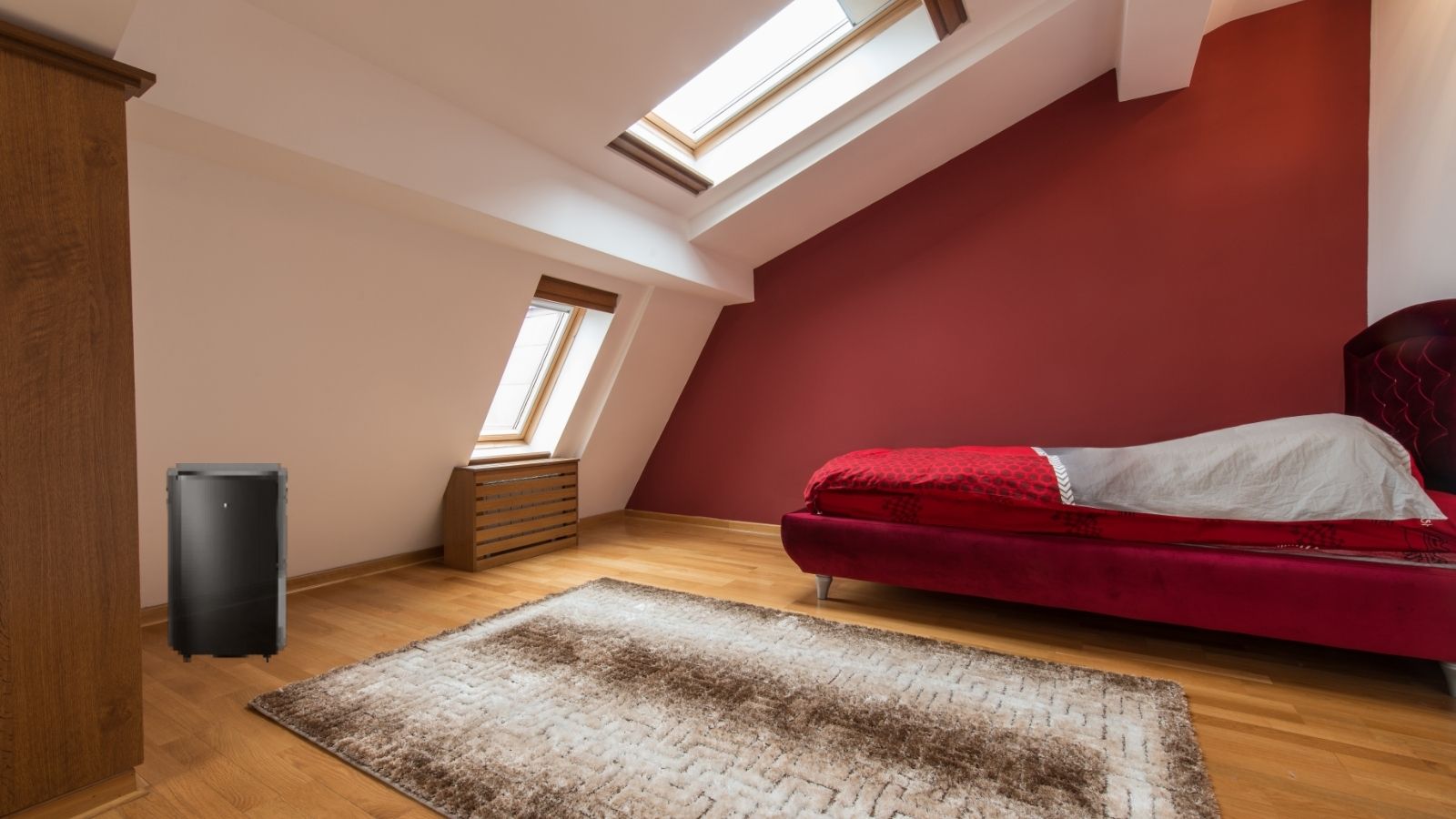
Where should you place a dehumidifier in the attic?
A dehumidifier is an indispensable piece of equipment for your humid attic. The placement and position of the attic dehumidifier play a major role in its efficiency. Even if you have an energy star dehumidifier with the best features, it will not yield the expected results if it is not located optimally.
An attic is usually a problem area with air leaks, exposed return ducts, and inconvenient, unreachable corners. Hence you need to consider the room’s size, humidity source, noise levels, dehumidifying range, post navigation features, and airflow blockages before you decide on the best location.
Experts suggest that it will be ideal if your portable dehumidifier is located as centrally as possible. The centralized positioning will ensure even dehumidification of the entire attic. But if you cannot position it centrally, the dehumidifier should be closest to the humidity source, and at least 6 inches away from items that interfere with airflow.
Our Verdict
It’s time for the verdict now.
Here is our take on the best dehumidifier for attic spaces. All rights reserved on our judgment!
👉 Best Overall – Frigidaire High-Efficiency 50-Pint Dehumidifier
👉 Runner Up – hOmeLabs 50-Pint Dehumidifier
👉 Best Budget Pick – Ivation IVADM35 Powerful Mid-Size Thermo-Electric Dehumidifier
Buy the dehumidifier that suits your need. Happy shopping!
FAQ Section
1. How to dehumidify a conditioned air attic?
Installing an attic dehumidifier inside your existing HVAC system is the best way to effectively dehumidify your attic space. It is less expensive and provides amazing warmth when compared to an air conditioner. The attic dehumidifier not only resolves your humidity problem but also makes the space more comfortable.
2. Should a dehumidifier be used in a vented or unvented attic?
Vents play one of the major roles in contributing to attic humidity levels. Inadequate venting does not let moist air to escape the attic. This leads to moisture accumulation. On the other hand, excessive venting can lower the temperature in the attic and cause condensation against the roof. Hence whether the attic is vented or unvented, a dehumidifier is highly recommended to eliminate humidity problems.
3. Should an attic be sealed when adding a dehumidifier?
The moisture removal efficiency of the attic dehumidifier will increase if the attic is sealed.
Final Words:
Ready to buy the best dehumidifier for attic? We hope you were able to compare and contrast the features to decide the best buy.
Which one of the attic dehumidifiers have you chosen for your home?
We are curious!

About The Author
Olivia — a self-confessed air quality addict — is a home climate enthusiast, fresh air advocate, and someone with deep personal experience and knowledge about mold extermination. Her work was mentioned in countless notable humidity publications. Previously she was an editor at Mold Remediation.
